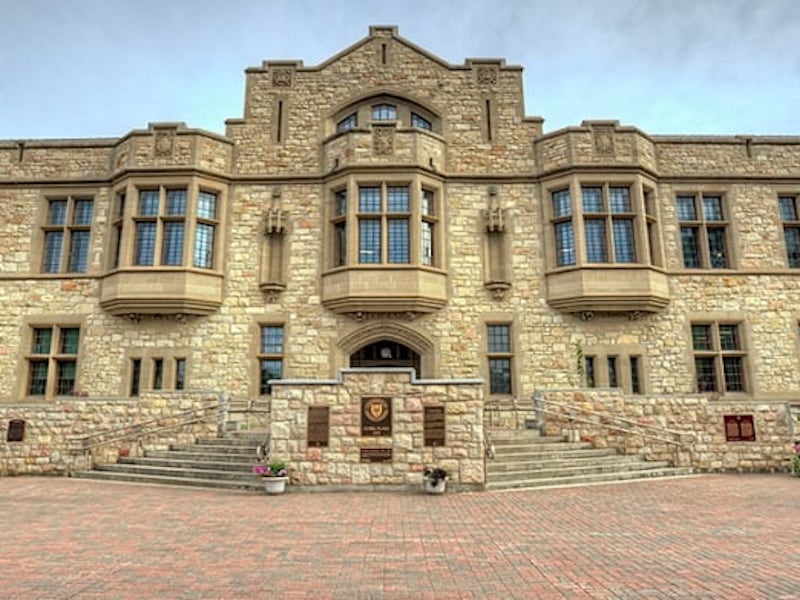

The union representing University of Saskatchewan support workers is one step closer to striking in an ongoing dispute regarding its members’ wages and pensions.
Canadian Union of Public Employees Local 1975, which has been without a contract since the end of 2015, voted to strike in September 2018 but has been held back by two disputes in front of the Saskatchewan Labour Relations Board.
At the heart of the union’s dispute is the university’s call to eliminate the workers’ defined benefit pension plan and shift active members to either a defined contribution or a target-benefit arrangement. Retired employees would continue to access the DB scheme. The change would affect around 1,400 members. The university is also looking to reduce contribution rates by three to four per cent.
Read: Union objects to University of Saskatchewan’s bid to replace DB plan
On March 25, the board allowed CUPE to withdraw from one of the disputes, and the union is currently before a tribunal for the other dispute, paving the way for employees to strike soon. The union and the university are set to return to the bargaining table on April 5.
In previous statements, the university has said the DB pension is unsustainable, citing the plan’s deficit during the global financial crisis in 2009. The union has disputed that characterization, noting that the plan had returned to a small surplus in 2017. It proposed moving to a jointly sponsored DB plan, which would split the risk evenly between both parties.
“We don’t think we need to fully sacrifice any kind of pension security for these members,” says Mark Janson, CUPE’s senior pensions officer. “We’re willing to be a partner with [the university] over the long term . . . to secure these benefits for members.”
The union said the university’s contribution rate to the pension plan is currently 12.84 per cent, which is projected to decrease to 12.05 per cent in 2023 and then 11.37 per cent in 2027 onwards. And it has proposed further reducing that rate to around nine per cent, noted CUPE.
Read: Why the jointly sponsored UPP is the right pension for the university sector
In an email to Benefits Canada, Gord Hunchak, chief communications officer at the University of Saskatchewan, said CUPE’s proposal “did not provide the cost certainty the university needs over the long term.” He also said the support workers’ plan is the last open DB pension at the university.
According to Janson, the university’s position is a bargaining tactic. “I think what they’re trying to do in using a term like [unsustainable] is convince members today that there’s some kind of structural problem in their own pension plan and unless they make some of these drastic changes then their own pension is at some kind of risk,” he said. “We don’t agree with that.”
In the 17 years prior to the 2009 financial crisis, the university took partial contribution holidays, where it used the pension’s surplus to reduce the contributions it would have to make to the plan, noted Janson.
CUPE has asserted the average pension its members receive is $18,100. “It’s hard to tell our members today that that’s too good, and the university is telling you that’s unaffordable after you’ve given an honest and decent career of hard work to the university,” says Janson.
Read: Prescription drug cap, pensions at heart of Labrador strike
Hunchak said CUPE’s DB plan has cost the university an additional $29.8 million in contributions beyond its normal contributions over the past decade. “These significant additional contributions are expected to continue into the future under the pension’s current structure, while the university continues to face financial pressures and challenges within the current economic environment.”
According to the University of Saskatchewan’s year-end report for the 2017-18 fiscal year, employee future benefit liabilities were $1.9 million, or one per cent of the university’s total liabilities as of April 30, 2018. During that year, the balance decreased by $18.8 million, or 91 per cent, which the university said “reflects the improved position of the university’s defined benefit pension plans and other obligations due to employees upon retirement.”
The university made $6.2 million in special going-concern payments to its DB plans that year.
Read: Brunswick Smelter workers to vote on strike over pension, benefit issues
Elsewhere in Saskatchewan, the University of Regina and its faculty association narrowly avoided a strike over its benefits plan by reaching a tentative deal on Monday that will go before the association’s approximately 1,020 members for a vote.
“We believe concessions were made on both sides, and there is lots of work to do in the next round and during the interim,” said the faculty association’s academic bargaining committee in a letter to members.
The faculty association’s agreement expired in June 2017 and parties began bargaining in April 2018. The union and university were able to reach agreement on benefits, including flexible spending and a parental leave top-up, review systems for its senior ranks and sessional instructors. However, the union was prepared to strike over outstanding issues, including a one per cent increase in pension contributions, to be matched by employees, and improvements in compensation.
Read: Unionized Bombardier staff secure pension, dental benefits improvements
